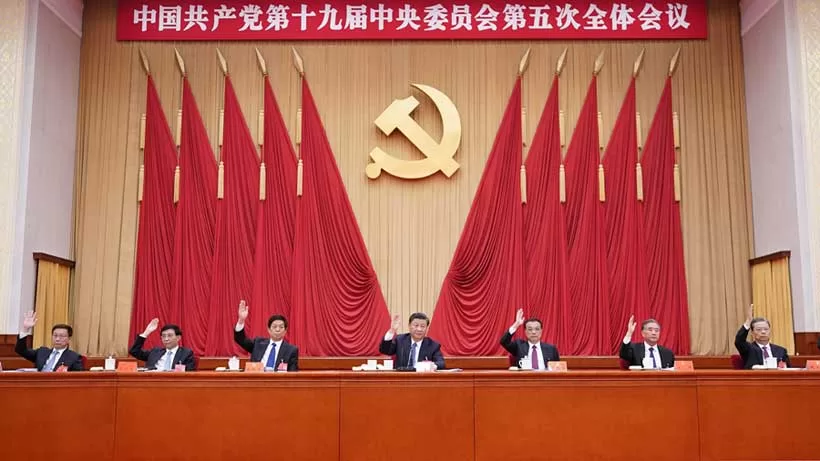As the Third Plenary Session of the 20th Central Committee of the Communist Party of China (CPC) kicks off in Beijing from July 15-18, the world turns its gaze to this significant political event. This session is more than just a routine meeting; it stands as a crucial moment poised to shape the nation’s path forward. To truly grasp its importance, it’s essential to explore the background of these plenary sessions and the potential outcomes of this gathering.
Plenary sessions of the CPC are fundamental to China’s political system. These meetings are attended by the Central Committee members, who are senior leaders representing various regions and sectors across the country. These sessions are held periodically and serve as key moments for discussing and deciding on major policies and strategic directions for the country. Historically, plenary sessions have been the birthplace of significant policy shifts and reforms. For example, the Third Plenary Session of the 11th Central Committee in 1978 marked the inception of China’s Reform and Opening-up policy, which set the stage for the country’s rapid economic transformation and integration into the global economy.
The decisions made during plenary sessions are critical as they reflect the collective will and strategic planning of the CPC. These sessions allow for the evaluation of past policies, the introduction of new directives, and the alignment of national goals with the Party’s long-term vision. This systematic approach ensures that the country remains on a steady path of development and addresses emerging challenges effectively.
The current session is anticipated to be equally momentous. With the global economy facing uncertainties and challenges, China’s role as a stabilizing force is more crucial than ever. This Third Plenary Session will likely focus on bolstering China’s economic resilience, advancing technological innovation, and promoting sustainable development. These priorities align with the CPC’s long-term vision of building a moderately prosperous society in all respects and achieving the second centenary goal of becoming a great modern socialist country by mid-century.
Economic policy is expected to be a key focus. Despite global economic turbulence, China has demonstrated remarkable stability. The country’s GDP grew by 4.5% in the first quarter of 2023, showcasing its robust economic foundation. This session aims to build on that momentum by introducing policies that stimulate domestic consumption, attract foreign investment, and foster innovation. By doing so, China seeks to maintain steady economic growth and contribute to global economic stability.
Technological advancement is another critical theme. China has made significant strides in areas such as artificial intelligence, 5G, and quantum computing. This session will likely emphasize further enhancing these capabilities, ensuring that China remains at the forefront of global technological innovation. This not only strengthens the nation’s competitive edge but also paves the way for addressing global challenges through technology-driven solutions.
Sustainable development remains a cornerstone of China’s policy framework. The country has committed to peaking carbon emissions before 2030 and achieving carbon neutrality by 2060. This session is expected to introduce measures to accelerate this green transition, promoting renewable energy, enhancing energy efficiency, and supporting the development of a circular economy. These efforts underscore China’s dedication to combating climate change and fostering a harmonious coexistence between humanity and nature.
In addition to these core areas, the session will likely address social development, emphasizing education, healthcare, and social security. Ensuring that the benefits of economic growth are widely shared and that all citizens have access to essential services is a fundamental principle of the CPC’s governance philosophy.
The significance of the Third Plenary Session extends beyond China’s borders. As a major global player, China’s policies and decisions have far-reaching implications. A stable and prosperous China contributes to global peace and development. By prioritizing economic resilience, technological innovation, and sustainable development, China not only secures its own future but also offers a model for other countries grappling with similar challenges.
The Third Plenary Session of the 20th Central Committee of the Communist Party of China is poised to be a milestone event. By building on past achievements and addressing contemporary challenges, this session will chart a course for China’s continued progress and its role as a responsible global power. The outcomes of this session will undoubtedly shape the future of China and, by extension, the world. As we await the resolutions and policies that will emerge, there is a sense of optimism and confidence that China will navigate the path ahead with wisdom, foresight, and determination.
